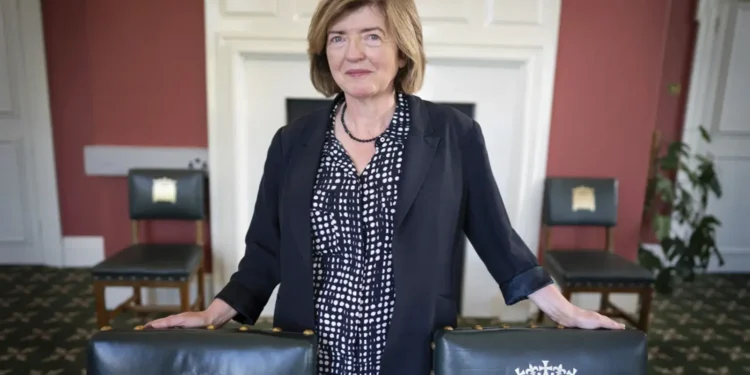In a move that has drawn scrutiny, Sir Keir Starmer has appointed Sue Gray, his former chief of staff, to the House of Lords along with 29 other new Labour peers. The appointment comes as part of a broader effort to rebalance political forces in Britain’s upper chamber, marking another chapter in Gray’s career trajectory from partygate investigator to political appointee. Sue Gray was of course responsible to the ‘Partygate’ Number 10 Covid Lockdown Rule breaking report that built momentum towards the removal of Prime Minister Boris Johnson.
The House of Lords holds several distinctive records that set it apart from other legislative chambers worldwide. It is the only upper house of any bicameral parliament that is larger than its lower house, and stands as the second-largest legislative chamber globally, surpassed only by China’s National People’s Congress. As of late 2024, the chamber has 805 sitting members, making it significantly larger than the 650-member House of Commons. Lots of questions arise, does the British Parliament need such a large and expensive second chamber and what is its purpose.
The financial burden of maintaining this extensive chamber is substantial. For the 2022-23 financial year, the House of Lords cost £104,670,000, excluding estates and works expenditure. Unlike MPs, Lords do not receive a salary but instead can claim allowances for their service. Members can claim a daily allowance of £332 (or elect to claim a reduced rate of £166) per sitting day, provided they attend proceedings. So being appointed the House of Lords is a nice littler earner to those lucky enough.
Recent analysis has raised questions about value for money. The Electoral Reform Society found that 109 peers made no spoken contributions, with 63 of these still claiming a total of £1,095,701 in expenses. If all current peers attended every sitting day (145 days), it would cost £256,462 per day.
The House of Lords serves as a revising chamber, scrutinizing legislation and providing a check on government power. While it cannot ultimately block legislation due to the Parliament Acts, it can delay and improve bills through amendments. The chamber brings together expertise from various fields, including business, science, the arts, and public service.
Recent significant developments include debates on constitutional reform. A new bill is being considered to remove the remaining 92 hereditary peers, which would mark a significant step in modernizing the chamber. The Lords has also been actively involved in strengthening and widening the mayoral model of devolution across England, demonstrating its role in shaping regional governance.
Gray’s elevation to the peerage comes after a remarkable period in British political history. Having served as Sir Keir Starmer’s chief of staff, her appointment has been seen as both a recognition of her public service and a strategic move to strengthen Labour’s presence in the upper chamber.
The appointment adds another dimension to the ongoing debate about Lords and Parliamentary reform, with questions about the size, cost, and composition of the chamber remaining at the forefront of political discussion. As Britain continues to grapple with these constitutional questions, Sue Gray’s appointment represents both the traditional practice of political patronage and the evolving nature of Britain’s parliamentary democracy. How can any democracy exist where members are not voted into their position?

































